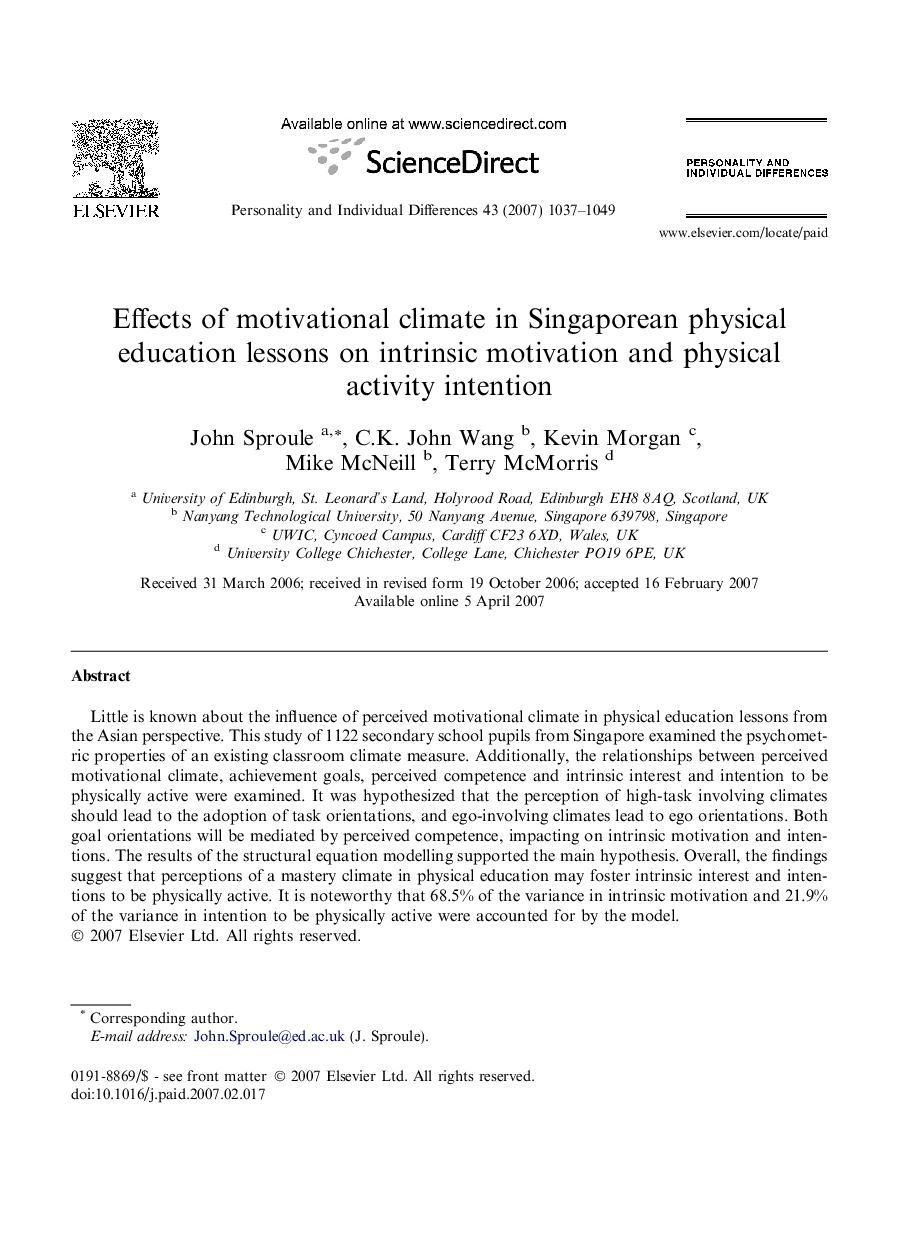| Article ID | Journal | Published Year | Pages | File Type |
|---|---|---|---|---|
| 893138 | Personality and Individual Differences | 2007 | 13 Pages |
Little is known about the influence of perceived motivational climate in physical education lessons from the Asian perspective. This study of 1122 secondary school pupils from Singapore examined the psychometric properties of an existing classroom climate measure. Additionally, the relationships between perceived motivational climate, achievement goals, perceived competence and intrinsic interest and intention to be physically active were examined. It was hypothesized that the perception of high-task involving climates should lead to the adoption of task orientations, and ego-involving climates lead to ego orientations. Both goal orientations will be mediated by perceived competence, impacting on intrinsic motivation and intentions. The results of the structural equation modelling supported the main hypothesis. Overall, the findings suggest that perceptions of a mastery climate in physical education may foster intrinsic interest and intentions to be physically active. It is noteworthy that 68.5% of the variance in intrinsic motivation and 21.9% of the variance in intention to be physically active were accounted for by the model.
